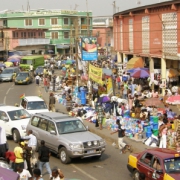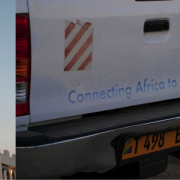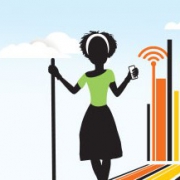ICT4 Greener Economy in Developing Countries: Mini Conference
As the Rio+20 draws near, a number of international conferences and summits aim at deliberating on sustainable environment and climate change across the globe are being convened. One of such is the mini conference on ICT for a Greener Economy in Developing Countries to be held next month (October 25th) in the Netherlands.
The ‘ICT for a Greener Economy in Developing Countries’ mini-conference is an event that will explore and highlight the key role Information and Communication Technology (ICTs) play in moving towards greener economies. It is being organized on the occasion of the 15th anniversary of International Institute for Communication and Development (IICD). The conference will bring together experts in the area of climate change and ICTs including Kentaro Toyama, the co-founder of Microsoft Research (MSR) India and a prominent scholar in ICT4D with the name ICT4D jester.
The conference will also see the official launching of “Bits4green initiative” which was set up by IICD, the Dutch corporate sector and World PC. The initiative focuses on reducing energy consumption and e-waste in developing countries. By supporting Bits4Green, companies show that they are investing in clean energy and actively working on a global reduction of electronic waste and energy use in developing countries. It also creates opportunities for entrepreneurs in the IT industry to actively contribute to a more sustainable and green use of ICT.
The design, production, use and disposal of information and communications technologies (ICTs) are contributing to the global environmental crisis. Even though the ICT sector’s contribution to global CO2 emissions is at the low side compare to other sectors (2–2.5%), it is projected to double by 2020. Developing countries are paying more for ICTs at the end of their life cycles (disposal) where, vast quantities of ICTs become highly specialized waste that includes environmentally hazardous metals like lead, mercury and cadmium, as well as toxic flame retardants and plastics. According to the International Institute for Sustainable Development (IISD), about 80% of all the e‑waste that is diverted – out of a yearly global e‑waste production of about 40 million tones is exported to developing countries such as China, India, Pakistan, Vietnam, the Philippines, Malaysia, Nigeria and Ghana.
At the same time, the expectations of developing countries to take advantage of the green economy through sustained growth model which will feature environmental-friendly technologies, use more renewable resources, and reduce green house gas (GHG) emissions, is high. Major developing countries like China have been sparing no efforts in developing green economy, which is widely regarded as a viable way of restoring job growth, reducing poverty and achieving a more sustainable economy. A joint report Why a Green Economy Matters for the Least Developed Countries issued at the start of the 4th UN conference by the United Nations Environment Program (UNEP), the United Nations Conference on Trade and Development (UNCTAD) and the UN Office of the High Representative for the Least Developed Countries, Landlocked Developing Countries and Small Island Developing States (UN-OHRLLS) and launched in Istanbul this year also points to the economic and human development opportunities of a green economy transition for the world’s least developed countries (LDCs). The report argues that LDCs face unprecedented vulnerabilities across a range of challenges and a the shift to a global green economy can put LDCs in an opportune position if the right enabling policies are put in place nationally and internationally.
The time to weigh the pros and cons of ICTs and green economy in the developing nations is now!








































